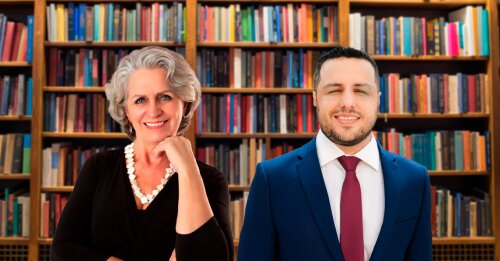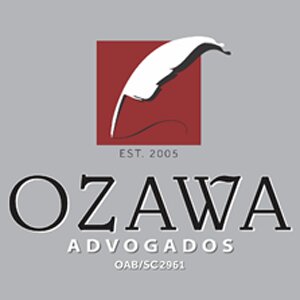Best Child Abuse Lawyers in Balneário Camboriú
Share your needs with us, get contacted by law firms.
Free. Takes 2 min.
Free Guide to Hiring a Family Lawyer
List of the best lawyers in Balneário Camboriú, Brazil
About Child Abuse Law in Balneário Camboriú, Brazil
Child abuse is a serious and urgent issue in Balneário Camboriú, Brazil, as it is throughout the country. The term encompasses various forms of harm against children and adolescents, including physical abuse, emotional abuse, sexual abuse, and neglect. Brazilian law provides strong protections for minors, with strict penalties for offenders. Local authorities and specialized agencies work together to identify, investigate, and address suspected cases of child abuse, while social support services strive to ensure victims are protected and cared for.
Why You May Need a Lawyer
People may need legal help with child abuse issues in Balneário Camboriú for several reasons. You may be a parent, guardian, or teacher who suspects a child is a victim of abuse and needs guidance on how to report it safely and effectively. If you are accused of child abuse, you will need legal representation to ensure your rights are protected and to prepare your defense. Families involved in custody disputes where abuse allegations are raised often require lawyer intervention to protect the child’s best interests and navigate complex legal proceedings. Finally, anyone wanting to understand their legal duties and options regarding the protection of children may benefit from legal advice.
Local Laws Overview
The key legal framework regarding child abuse in Balneário Camboriú is provided by the Brazilian Federal Constitution, the Penal Code, and especially by the Statute of the Child and Adolescent (Estatuto da Criança e do Adolescente - ECA). Some relevant highlights include:
- Any form of physical, emotional, or sexual violence against a child or adolescent is strictly prohibited.
- Mandatory reporting laws require individuals, particularly professionals like teachers and doctors, to report suspected cases to authorities.
- Victims are entitled to protection and assistance, including psychological care, shelter, and family support services.
- The Conselho Tutelar (Guardianship Council) acts as the primary local authority for the protection of at-risk children and adolescents.
- The legal system prioritizes the child's best interests in all proceedings and investigations related to abuse.
Frequently Asked Questions
What should I do if I suspect a child is being abused?
Immediately contact the local Conselho Tutelar or the police. Providing as much detail as possible helps ensure the right steps are taken quickly to protect the child.
Who is required to report suspected child abuse in Balneário Camboriú?
All citizens can and should report abuse, but professionals working with children, such as teachers, doctors, and social workers, are legally mandated to do so.
What happens after a report is made?
The authorities will investigate the situation, usually involving the Guardianship Council and possibly the police. They will take measures to protect the child and determine if criminal charges are warranted.
What are the penalties for child abuse in Brazil?
Penalties vary depending on the severity and type of abuse but can include fines, loss of parental rights, and lengthy prison sentences for convicted offenders.
Can a parent lose custody of their child due to abuse?
Yes, if the courts determine that a parent has abused a child or failed to protect them, custody can be revoked and the child may be placed with another family member or in protective care.
Are children interviewed directly during investigations?
When necessary, interviews are conducted by specially trained professionals in child-friendly environments to minimize trauma and ensure the child’s well-being.
What if abuse is occurring within a school or institution?
In addition to standard reporting, school authorities or institution managers must also notify the Guardianship Council and cooperate with investigations.
How quickly do authorities act on abuse reports?
Authorities prioritize child safety and act as swiftly as possible. Immediate protection may be provided while a thorough investigation is conducted.
Can anonymous reports be made?
Yes, anonymous reports are allowed and are often encouraged to ensure that fear of retaliation does not prevent someone from reporting suspected abuse.
What legal support is available for victims and families?
Victims and their families may receive free legal assistance through the Public Defender’s Office, as well as support services from governmental and non-governmental organizations.
Additional Resources
There are several resources and organizations in Balneário Camboriú and nationwide that provide support and information on child abuse:
- Conselho Tutelar de Balneário Camboriú - The local guardianship council responsible for investigating cases and ensuring child protection.
- Ministério Público de Santa Catarina - The state prosecutor’s office, which can be contacted for crimes against children.
- Polícia Civil de Santa Catarina - Handles criminal investigations and emergency responses to child abuse.
- Defensoria Pública de Santa Catarina - Provides free legal services to those unable to afford a private lawyer.
- Disque 100 - A national hotline for reporting abuse against children and adolescents.
- Centro de Referência Especializado de Assistência Social (CREAS) - Offers specialized social services for victims of violence.
Next Steps
If you suspect child abuse, your first priority should be reporting it immediately to the authorities to ensure the child’s safety. You can contact the Conselho Tutelar, the police, or use the Disque 100 hotline to make a report. Once a report is made, consider seeking legal counsel to understand your obligations and protect everyone involved, especially if you are a party to legal proceedings. Consult the Public Defender’s Office if you do not have a private lawyer, or look for local organizations that specialize in helping victims of abuse. Remember, quick action can save a child from ongoing harm and set them on a path toward recovery and justice.
Lawzana helps you find the best lawyers and law firms in Balneário Camboriú through a curated and pre-screened list of qualified legal professionals. Our platform offers rankings and detailed profiles of attorneys and law firms, allowing you to compare based on practice areas, including Child Abuse, experience, and client feedback.
Each profile includes a description of the firm's areas of practice, client reviews, team members and partners, year of establishment, spoken languages, office locations, contact information, social media presence, and any published articles or resources. Most firms on our platform speak English and are experienced in both local and international legal matters.
Get a quote from top-rated law firms in Balneário Camboriú, Brazil — quickly, securely, and without unnecessary hassle.
Disclaimer:
The information provided on this page is for general informational purposes only and does not constitute legal advice. While we strive to ensure the accuracy and relevance of the content, legal information may change over time, and interpretations of the law can vary. You should always consult with a qualified legal professional for advice specific to your situation.
We disclaim all liability for actions taken or not taken based on the content of this page. If you believe any information is incorrect or outdated, please contact us, and we will review and update it where appropriate.









